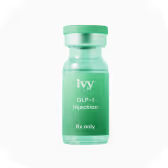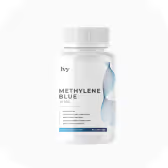


Metformin
From $90 (3 months - 180 tablets)
Metformin—a widely used diabetes medication—may support healthy aging by improving glucose control, promoting weight management, and reducing the risk of age-related conditions.
Regulates sugar levels and activates fat-burning pathways
Reduces hunger for lower calorie intake and weight loss
Boosts GLP-1 by activating a powerful weight-loss hormone
Fast online approval, free expedited shipping


How to take
Metformin is taken by mouth once or twice daily, with or after meals, to help reduce stomach upset and improve absorption.
Potential side effects
Common side effects include nausea, upset stomach, diarrhea, and bloating—especially when starting. These usually improve as your body adjusts.
Potential benefits
No insurance needed. IVY RX offers clear, upfront pricing and affordable generic options—making it easy and accessible to take care of yourself, no complications or surprises.
How Metformin works
Boosts Fat Burning
Curbs Appetite
Supports Anti-Aging

Why Metformin?
200,000+ members thriving and age defying
All your questions, answered
Do I need a prescription?
You do not need to have a pre-existing prescription or a referral to use IVY RX. After your online visit, if the medical professionals on our platform determine it is safe and appropriate, they will write a prescription for you.
Can Metformin help with weight loss?
Yes, metformin has been associated with modest weight loss. It works by reducing appetite, improving insulin sensitivity, and encouraging the body to burn fat more efficiently. However, it’s not a substitute for diet and exercise, and results may vary.
Can I talk to a doctor?
Absolutely! You can quickly and securely message your care providers through our patient portal. Simply log in, choose your provider, and send them a message. It’s that easy!
Are there any side effects of taking Metformin?
Common side effects of metformin include nausea, diarrhea, and stomach upset, especially when starting the medication. Rarely, it can cause vitamin B12 deficiency or lactic acidosis. If you experience severe side effects, contact your healthcare provider immediately.
Is Metformin approved by FDA for longevity benefits?
No, Metformin is FDA-approved specifically for the treatment of Type 2 diabetes mellitus. This is the primary on-label indication for its use.However, like many medications, Metformin is often prescribed off-label for conditions such as polycystic ovary syndrome (PCOS), obesity, and certain cancers. Once the FDA has approved a drug for one condition, healthcare providers may prescribe it for other purposes based on their clinical judgment and the patient's needs. Additionally, Metformin has been approved for study by the FDA in the context of human longevity through the groundbreaking TAME (Targeting Aging with Metformin) trial, which began in 2020.
Metformin (Off-Label Use for Anti-Aging & Weight Loss): Important Safety Information
1. Introduction
- FDA-Approved Use
Metformin is an oral medication primarily approved by the U.S. Food and Drug Administration (FDA) for the management of type 2 diabetes mellitus. It helps improve blood glucose control by decreasing glucose production in the liver and increasing insulin sensitivity. - Off-Label Use
Metformin has garnered interest as a potential agent for anti-aging and weight management, but it is not FDA-approved for these purposes. Efficacy and safety data for these off-label uses are still under investigation in clinical and observational studies.
2. Potential Benefits & Limitations
- Possible Benefits (Off-Label)
- Anti-Aging: Some researchers hypothesize metformin may have protective effects on metabolic and cellular processes related to aging.
- Weight Management: Metformin can help reduce appetite or modestly aid weight reduction in certain individuals, especially those with insulin resistance.
- Limitations
- There is no guarantee of anti-aging or weight-loss results, as evidence is not conclusive for these off-label indications.
- Metformin does not replace lifestyle interventions such as a healthy diet, regular exercise, and balanced sleep.
- This product is not intended to diagnose, treat, cure, or prevent any disease in the context of anti-aging.
3. Contraindications
You should not take metformin if you:
- Have a severe renal impairment or significantly reduced kidney function (e.g., eGFR below certain thresholds—consult your healthcare provider for details).
- Have a known hypersensitivity to metformin or its inactive ingredients.
- Have acute or chronic metabolic acidosis (including diabetic ketoacidosis).
- Are undergoing imaging studies with iodinated contrast (your provider may advise temporarily stopping metformin around the time of the procedure to reduce risk of kidney issues).
- Have any condition associated with hypoxemia or significantly compromised circulation (e.g., heart failure or recent myocardial infarction), which can increase the risk of lactic acidosis.
4. Black Box Warning: Lactic Acidosis
- Serious Risk
Metformin can cause lactic acidosis (a dangerous build-up of lactic acid in the blood). Although rare, it can be fatal. - Risk Factors
- Poorly functioning kidneys.
- Excessive alcohol intake.
- Severe dehydration or infections.
- Use of certain medications (e.g., carbonic anhydrase inhibitors) or conditions reducing tissue perfusion.
- Symptoms
- Rapid breathing, muscle pain, abdominal discomfort, unusual fatigue, dizziness, or feeling cold.
- Seek immediate medical attention if you suspect lactic acidosis.
5. Warnings & Precautions
- Off-Label Status
- Metformin’s benefits for anti-aging or weight loss are not confirmed by large-scale randomized trials. Use under medical supervision if considering for off-label purposes.
- Renal & Liver Function
- Periodic kidney function checks (e.g., eGFR) are essential.
- Caution in patients with hepatic (liver) impairment, as it may increase the risk of lactic acidosis.
- Vitamin B12 Deficiency
- Long-term metformin use may reduce vitamin B12 absorption. Your provider may recommend periodic B12 monitoring and supplementation if needed.
- Hypoglycemia Risk (Low Blood Sugar)
- While metformin alone rarely causes hypoglycemia, the risk may increase if you combine metformin with other anti-diabetic agents (e.g., insulin, sulfonylureas).
- Pregnancy & Breastfeeding
- Safety in pregnant or breastfeeding individuals for anti-aging or weight-loss purposes is not established. Discuss with a qualified healthcare professional before use.
6. Common Side Effects
You may experience mild to moderate side effects when starting or adjusting metformin dosage. Contact your healthcare provider if symptoms become severe or persist.
- Gastrointestinal (GI) Distress
- Nausea, diarrhea, abdominal cramping, bloating, or gas.
- Taking metformin with meals can often help reduce GI side effects.
- Metallic Taste
- A harmless yet noticeable metallic or bitter taste in the mouth.
- Weakness or Fatigue
- May occur initially; consult your provider if persistent or severe.
- Vitamin B12 Deficiency
- Can manifest as numbness, tingling in extremities, or fatigue over long-term use.
7. Drug Interactions
- Other Medications
- Some drugs (e.g., diuretics, corticosteroids, antihypertensives, carbonic anhydrase inhibitors, etc.) can affect metformin’s safety and effectiveness.
- Always inform your healthcare provider of all prescription, over-the-counter medications, vitamins, and herbal supplements you take.
- Alcohol
- Excessive alcohol consumption increases the risk of lactic acidosis and should be avoided or limited while on metformin.
8. Administration & Dosage
- Prescribed Dosage
- Doses vary based on clinical factors such as body weight, kidney function, and potential diabetic risk.
- Do not exceed the recommended dose without medical advice.
- Timing
- Usually taken with meals to reduce GI discomfort.
- Extended-release forms (XR) may be taken once daily, often with the evening meal.
- Monitoring
- Your healthcare provider may recommend periodic blood tests to monitor kidney function, vitamin B12 levels, and overall metabolic health.
9. Storage & Handling
- Storage
- Store at room temperature away from moisture and direct sunlight.
- Keep out of reach of children and pets.
- Integrity
- Check expiration dates. Do not use expired metformin.
- Store tablets in their original packaging whenever possible.
10. Adverse Event Reporting
- Severe Reactions
- Stop taking metformin and seek immediate medical attention if you experience symptoms of lactic acidosis or a severe allergic reaction (e.g., hives, swelling, difficulty breathing).
- FDA Reporting
- Patients or healthcare providers can report suspected adverse reactions to the FDA’s MedWatch Program at 1-800-FDA-1088 or online at www.fda.gov/medwatch.
11. Disclaimer
- Off-Label Use
- Metformin’s use for anti-aging or weight-loss support is not FDA-approved, and scientific consensus on these off-label benefits is still evolving.
- Not a Replacement
- Metformin is not a replacement for a healthy diet, regular exercise, and routine health monitoring.
- Consult a Professional
- This information is for educational purposes only and is not a substitute for professional medical advice, diagnosis, or treatment.
Questions or Concerns?
If you have any questions about metformin’s off-label use for anti-aging or weight loss, including potential benefits, side effects, or dosage, please consult a qualified healthcare professional.

















.avif)



























